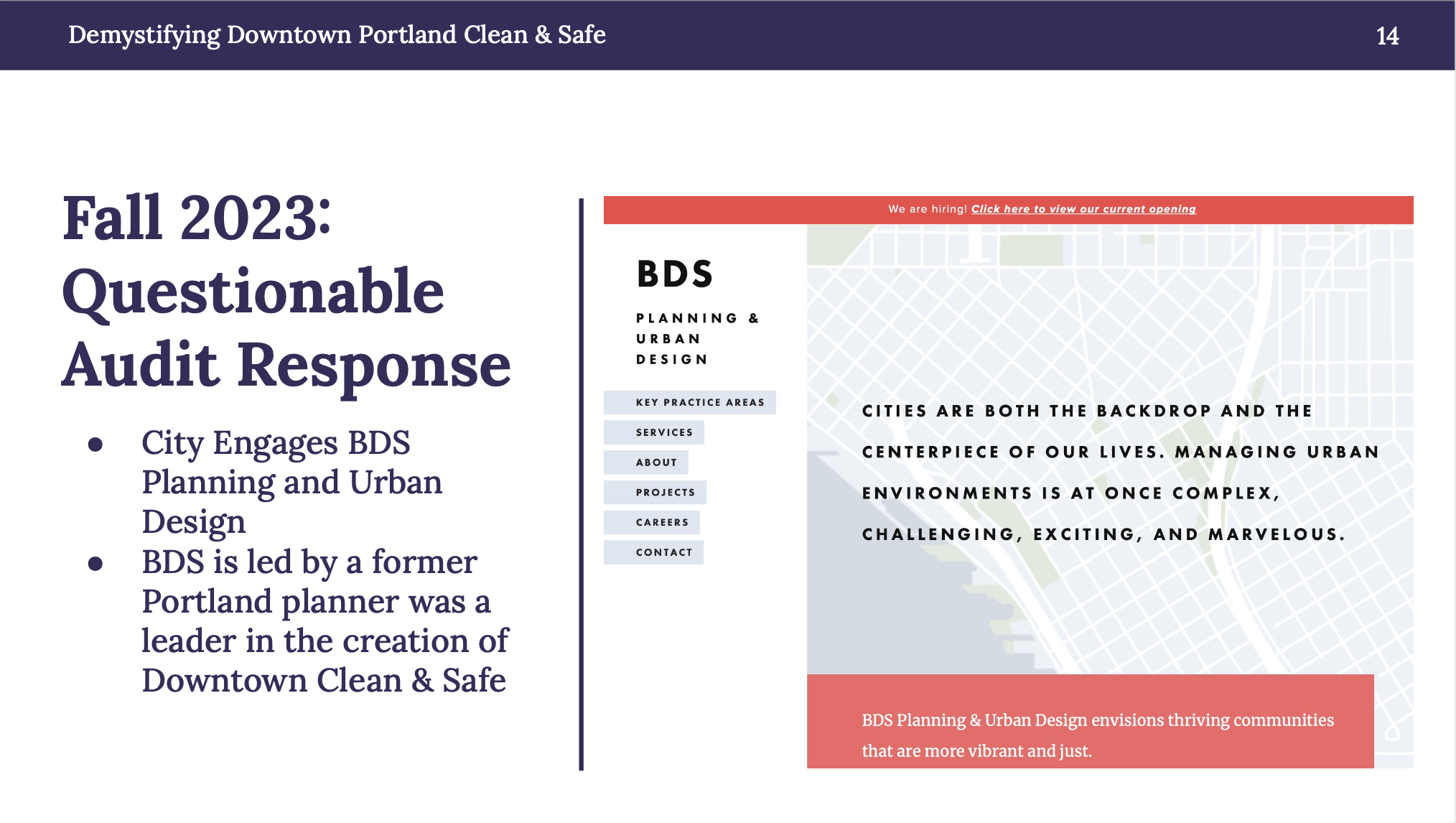⚡ URGENT ACTION ALERT ⚡
Sign onto the open letter urging City Council to table the vote on the contract renewal
Portland for All’s Presentation:
“Demistifying Downtown Portland Clean & Safe: How it works, what it’s funding, and how it buoys the Portland Metro Chamber’s budget”
What is Clean & Safe?
Downtown Clean & Safe is an Enhanced Service District, or ESD. ESDs are sometimes called Business Improvement Districts (BIDs). Clean & Safe is one of three ESDs in Portland, and it has an annual budget of $5 million.
ESDs use public resources to privatize functions of local government. An ESD is a private sector initiative that requires all business and property owners in an area to pay into a fund. The ESD uses this fund to pay for services traditionally provided by local governments.
The Clean & Safe ESD covers 213 blocks primarily in downtown Portland and the Pearl District. The money Clean & Safe collects from the area’s businesses and property owners is typically spent on cleaning services and armed private security.
Clean & Safe is managed by the Portland Business Alliance (PBA) and has no community oversight. In recent years, PBA has used funding intended for the district to pay its own staffing and administrative costs, and an audit revealed that the City has not fulfilled its oversight requirements for Clean & Safe.
Why is Clean & Safe bad for Portland?
Downtown Clean & Safe is bad for Portland because it’s undemocratic and harms community members who have the fewest resources.
Clean & Safe targets houseless individuals trying to survive, criminalizing them instead of providing them with the services they need.
There is no accountability over how Clean & Safe spends its funds, since regular Portlanders don’t have access to Portland Business Alliance’s decision-making, and the City has failed to provide any oversight.
It uses public resources to fund a service that business or property owners might not want, but there is no way to opt out.
Clean & Safe privately funds four police officers who serve the business owners while on duty instead of the public.


























